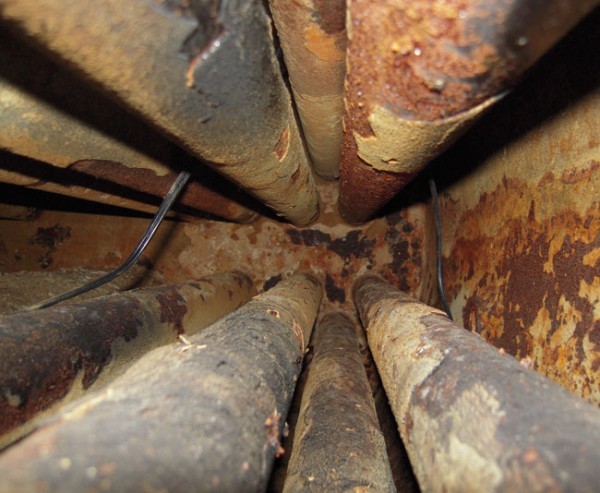
How often should you clean your boiler?
Spring is the time of the year when we begin to think about Spring Cleaning. And Engineered Energy Equipment (EEE) recommends that it’s a good time to schedule those annual inspections (before it gets too hot).
Kevin Warren, EEE Director of Sales, recommends daily cleaning for boiler blowdown, because blowdown reduces conductivity and consumption and can be a safety risk. “Essentially, boiler blowdown cleaning is done to remove suspended solids and sediment. With the abundance of mineral deposits in Florida water, high quality water treatment is vital,” said Warren.
There are two methods to treat blowdown: manual and automated. Bottom blow must be performed manually and routinely. Automation is recommended for continuous surface blowdown, and a high-quality water treatment program is mandatory for preservation of the boiler pressure vessel. “The chemicals in water treatment make the suspended sediment sink to the bottom of the boiler,” said Warren, “And it makes blowdown of the boiler much more effective.”
Regular cleaning of the boiler will not only avoid costly repairs and increased fuel consumption, but neglecting maintenance will significantly age your boiler that should be able to provide steam reliably for decades.
What creates boiler blowdown?
The water which is circulated inside the boiler tubes and drum contains Total Dissolved Solids (TDS) along with other dissolved and undissolved suspended solids. During the steam making process, the water is heated and converted into steam. However, these dissolved solids do not evaporate and get separated from water or steam, and they tend to settle at the bottom of the boiler. This layer of “mud” will prevent the transfer of heat and can eventually cause overheating of the boiler tubes or shell.
According to Warren, not cleaning boiler blowdown affects the conductivity of the water. Lack of blowdown cleaning can overheat the tube, because the suspended solids literally adhere to the tube. That will decrease your heat transfer and decrease the efficiency of your boiler = increase fuel costs. “Bottom blow should be done every shift in most cases. It’s like taking out the garbage,” said Warren.
In addition to manual blowdown, Warren recommends the use of a blowdown separator for safe operation of the blowdown process. The separator enables safe release of the boiler water under pressure while preventing damage to the sewage collection system. He added, “The sewer drain helps your boiler maintain good bacteria in order to optimally function. The water needs to go from 300 degrees in the boiler to 140 degrees so that the good bacteria aren’t killed. This is part of the function of the blowdown separator.”
EEE strongly recommends using a high-quality water treatment program in your boilers, and they work closely with Greg Livingston, President of Chemline Inc./Sci-Chem Water Treatment.
How does water treatment help clean boiler blowdown?
The task of removing carbon deposits and other impurities from the boiler is much easier with proper water treatment, which helps remove two types of impurities: scum and bottom deposits. According to Greg Livingston, “You want to clean and protect your boiler for longevity. With good water treatment, your boiler should last 40-50-60 years. It’s important to blow down the boiler every day to keep the pipes clear.”
Livingston added that water treatment enhances safety for operators in addition to maintaining the efficiency of the boiler. “It’s kind of like the importance of the float in your toilet,” added Livingston. According to Woodruff, Lammers & Lammers in Steam-Plant Operation, it is exactly that: “A more sophisticated skimmer arrangement [that] attaches a swivel joint to the pipe for a short length of pipe suspended by a float.”
Livingston reiterated Warren’s concerns about keeping the boiler safe, efficient, and maximizing its ability to transfer heat. “We need to keep the metal clean to optimally transfer heat,” said Livingston. Frequent water testing is also important to ensure that the boiler is using various chemicals in the hot well so that the feed water will have fewer impurities.
Spring is a great time to test and treat your water during an annual evaluation to drain the boiler for cleaning and inspection. This is a job for professional boiler room technicians who will inspect and clean the burner and should also inspect the three most critical safety systems on the boiler: the blowdown valve, the low water cut-off switch, and the safety pressure relieve valve. Failures in any of these systems can create shutdown or damage.
Give EEE a call today at 863-682-3333, or send us an e-mail at info@eeeinc.net. We would be pleased to provide you with excellent water treatment and equipment to maintain the safety, efficiency, and longevity of your boiler and boiler room equipment. Spring cleaning (and daily cleaning of your boiler) will help you save on fuel costs and increase your boiler’s efficiency so that your boiler runs for decades.
#BoilerMan #ProductsThatProduceResults #AnswersToYourBurningQuestions

